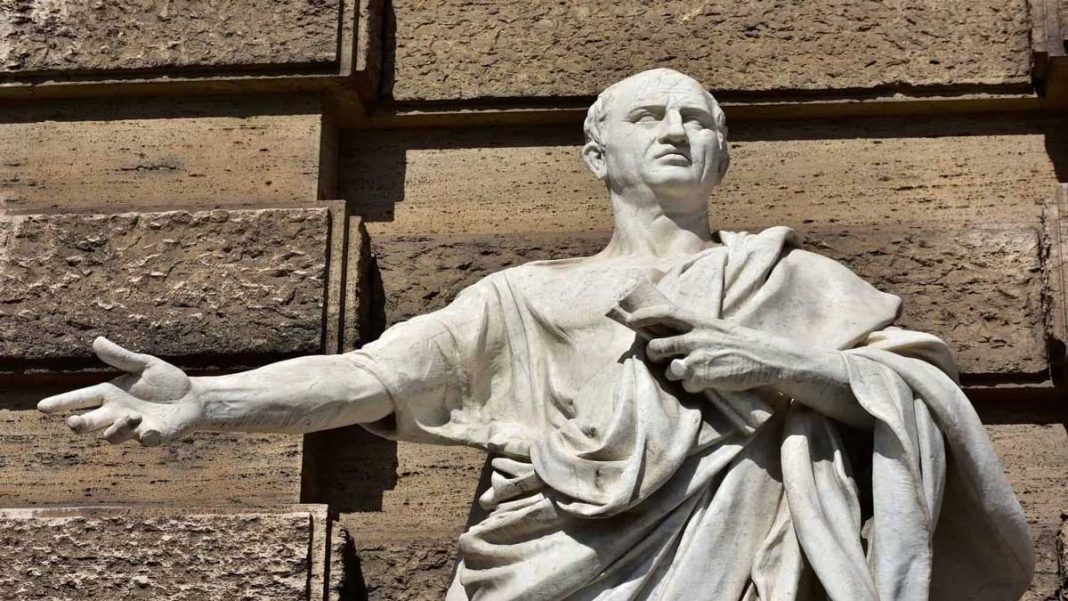Any scholar will appreciate Kipchumba Murkomen’s guts at Bomas. Whether he was genuine or not, his rallying cry for the business of the day was misunderstood by the audience. He failed to wear the hat of Mark Anthony as seen in the play written by William Shakespeare. This led to his booing. He lost a lifetime opportunity of going down in the books of history as the greatest orator of his time. His words ,if well placed ,would have forever changed the course of history.
Brutus was among those who assassinated Caesar, but with brilliant oratory, convinced the Roman populace that he had done what was best both for them and for the greater glory of Rome. He stirred up in the crowd a loathing of Caesar, and of those like Mark Anthony who had remained loyal to Caesar.
At the end of the 16th century, William Shakespeare wrote the play Julius Caesar, that dramatizes the conflict and intrigues that surrounded Caesar’s death in 44 B.C.
When Mark Anthony rose to address that same crowd, he had work cut out for him. Before he uttered his first words, a belligerent voice from the mob yelled ”speak no harm of Brutus here.”
Another voice shrieked, “This Caesar was a tyrant.” Another howled, “We are blessed that Rome is rid of him.” Everybody was anti Mark Anthony.
Mark Anthony realized he would be lucky to live through that night. The style of delivery of hid speech, as such, became a life and death matter.
Mark Anthony did three things in that speech that makes it stand out as a piece of oratory genius.
In his opening remarks, Kipchumba Murkomen went on the offensive. He did not placate the audience.
In Act III, Scene ii, Julius Caesar by William Shakespeare, Marc Antony turns the audience against the conspirators.
Antony begins:
‘Friends, Roman, Countrymen, I come to bury Caesar not to praise him.’
Even the first words of his speech serve a purpose. Antony is placing himself on the same level as the commoners.
As he promised Brutus, he tells the crowd that he is speaking only to bury his beloved friend, Caesar.
He states that Caesar will probably only be remembered for the bad things that he did. The good will be forgotten when Caesar is buried.
Antony then begins to refer to Brutus and the conspirators with the words honorable and noble. Of course, Antony does not mean this, and initially he sounds sincere. As the oration progresses, Antony becomes more sarcastic as he uses the words.
Antony talks of Caesar supposed ambition.
If Caesar were ambitious, he has paid the price for his supposed ambition with his life.
He reminds the crowd that he is speaking with permission of the “noble” Brutus.
Antony justifies why he is speaking for Caesar. He was a good friend who was faithful and fair.
Was Caesar Ambitious?
- Caesar has filled the Roman treasury when he returned from battles. He has been paid money for captives and given the money to Rome.
- When Caesar saw the hardships that many Romans live under, Caesar cried for them.
- Three times, Antony offered the crown to Caesar, and he refused it.
Was This Ambitious Of Antony?
Antony does not understand how the Roman people could have loved Caesar so recently; and now, they cannot mourn his death.
Then Antony says that men have turned into animals and have lost their ability to think. He pauses to contain his grief.
Then he points out Caesar’s body and tells the crowd that his heart his broken. Antony returns with the intention of showing the body of Caesar.
Antony says that he does not understand what the reasons were for the assassination. Using humility, he says that he is not a great orator like Brutus. Antony claims to be an ordinary man who loved his friend. He has no ability to inspire or motivate the citizens.
Maybe the wounds of Caesar could speak for him.
Now lies he there,
And none so poor to do him reverence.
O masters! If I were disposed to stir
Your hearts and minds to mutiny and rage
Antony pulls out the will of Caesar. Antony needs to inflame the citizens more. He paints the picture of Brutus and the other conspirators dipping their napkins in the blood of Caesar as a souvenir.
Antony reminds them of the power that Caesar once wielded. He pulls away the cloak covering the body of Caesar. The crowd is shocked by the gruesome sight. Antony begins to name each conspirator and the place where he stabbed Caesar. He ends with the name of Brutus as the unkindest cut of all because Brutus was Caesar’s friend, and he broke his heart.
Then he reminds them of the will. He tells them that Caesar has given every Roman citizen 75 drachmas and a large part of his lands which had been made into parks and recreational places for the Romans.
This turns the crowd into a mob and sends them out in search of the conspirators to assassinate them.
If Kipchumba Murkomen would have applied this form of great oration,he would have managed to jump over the hurdle of boos and chants coming from the audience

